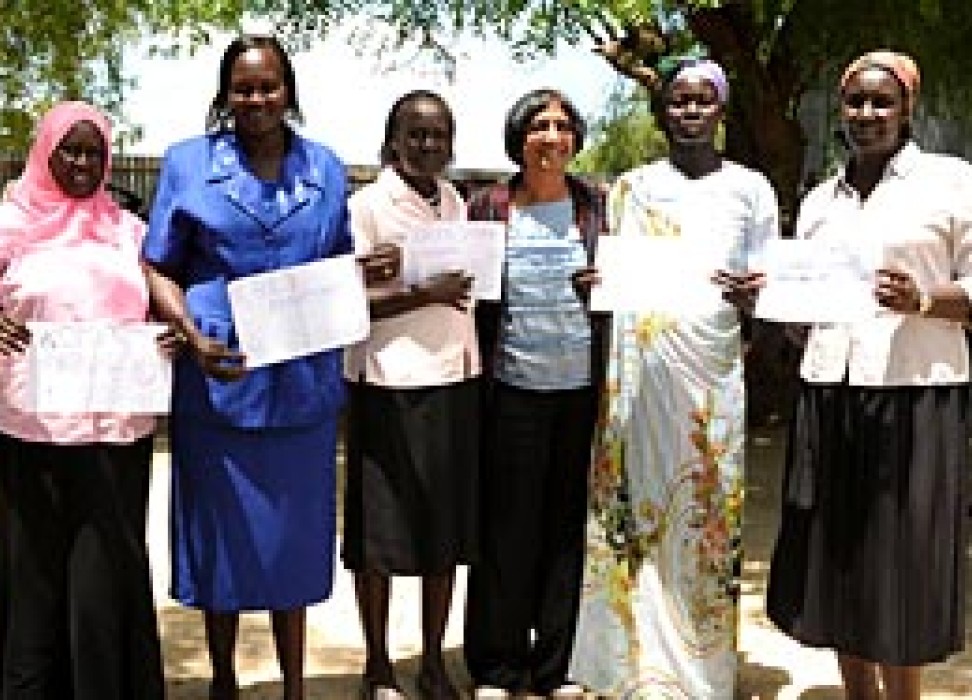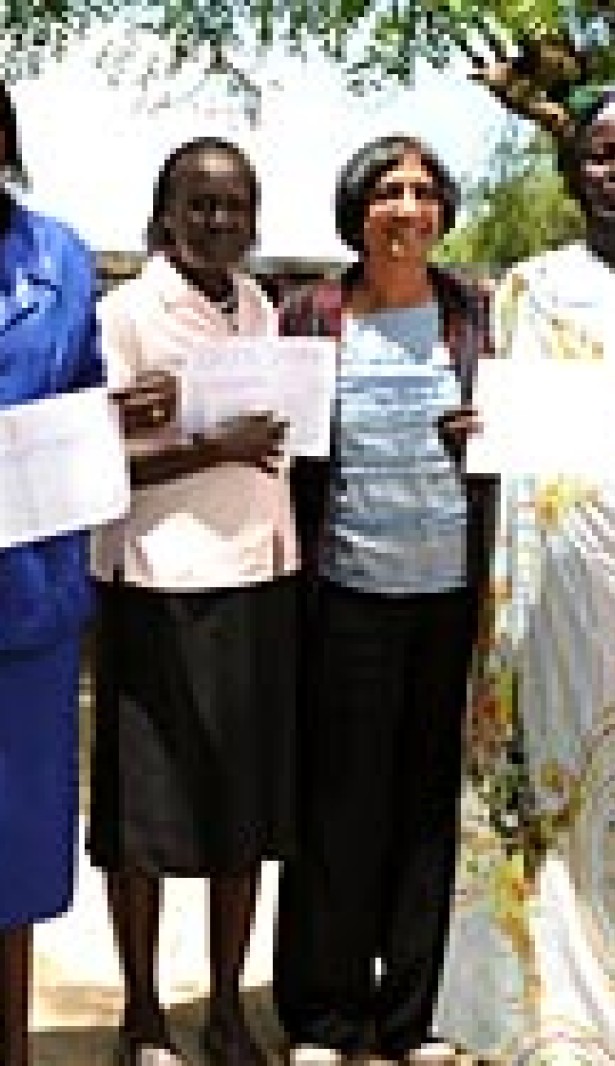Human Rights Chief Pillay visits the world’s newest State: South Sudan
15 May 2012

The visit by the United Nations High Commissioner for Human Rights Navi Pillay was her first since South Sudan became independent in July 2011. The security situation in South Sudan, one of the poorest countries in the world, continues to be fragile with frequent outbreaks of violence between competing tribes, abuses by security forces and a difficult and unsettled relationship with neighboring Sudan.
During her four days in South Sudan, Pillay met with the President Salva Kiir, the Speaker of the National Assembly and with the Justice Minister in the capital Juba.
She also flew to the Upper Nile region of Jonglei where there have been frequent clashes between the Sudan People’s Liberation Movement Army and rebel militia groups and continuing violence between tribal groups resulting in a severe, on-going humanitarian crisis.
Pillay was heartened, she said, to hear from the President that the Government is committed to ratifying the core human rights treaties. Once sound national laws which abide by the treaties are enacted then South Sudan will have a clear legal framework to address rule of law issues, she said.
In a briefing to journalists, Pillay said “being such a young State presents opportunities as well as disadvantages.”
“To some extent South Sudan is starting with a clean slate, and when it comes to passing good laws and establishing effective institutions, that can be an advantage,” she said.
Pillay recalled a comment from a civil society representative she had met who said, “The We’re still a young nation phrase should be avoided. Human rights are human rights, whatever the state of your development.”
“I could not agree more,” the High Commissioner said. “There are no excuses, not even the youthfulness of the state, for ignoring or violating human rights.”
In her meetings, the High Commissioner stressed the importance of due process, ensuring people are not arbitrarily detained, or held for long periods of time without being charged or tried.
“There is a widely recognized need to make a sustained effort to combat impunity, particularly among members of the security forces who have been involved in torture, beatings and other unacceptable and criminal behavior,” Pillay said.
The High Commissioner also drew attention to the importance of boosting efforts to prevent discrimination against women. In Jonglei, Pillay spoke with civil society organizations and individual women who described the “extreme lack of rights for women living in South Sudan”.
They spoke, Pillay said, of the “tyranny of a dowry system that fuels the practice of early and forced marriage… Cases were described in which young girls who rejected forced marriage were ill treated and even beaten to death by their male relatives.”
“Such terrible forms of discrimination should not be explained away as cultural practices that cannot be challenged or changed. I believe in cultural rights, but not in the cultural repression of half the population,“ Pillay said.
Pillay concluded by urging support for South Sudan from the international community: “South Sudan is one of the poorest and least developed countries in the world, with more than 80 percent of the population living on less than USD 1 per day.
The challenges are enormous, and the people of South Sudan deserve the commitment of the international community to assist them along what will be a very long and difficult path to peace, prosperity and a full realization of human rights,” she said.
15 May 2012

VIEW THIS PAGE IN:
